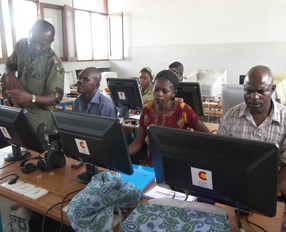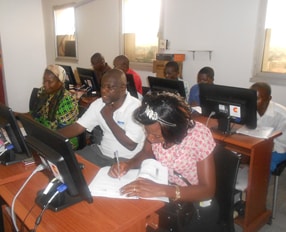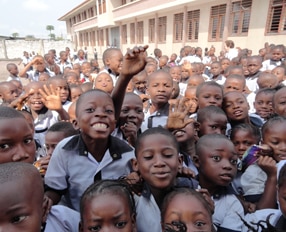
During the period from 11 to 16 January 2014, two
Normal
0
21
false
false
false
ES
X-NONE
X-NONE
/* Style Definitions */
table.MsoNormalTable
{mso-style-name:”Tabla normal”;
mso-tstyle-rowband-size:0;
mso-tstyle-colband-size:0;
mso-style-noshow:yes;
mso-style-priority:99;
mso-style-qformat:yes;
mso-style-parent:””;
mso-padding-alt:0cm 5.4pt 0cm 5.4pt;
mso-para-margin:0cm;
mso-para-margin-bottom:.0001pt;
mso-pagination:widow-orphan;
font-size:11.0pt;
font-family:”Calibri”,”sans-serif”;
mso-ascii-font-family:Calibri;
mso-ascii-theme-font:minor-latin;
mso-fareast-font-family:”Times New Roman”;
mso-fareast-theme-font:minor-fareast;
mso-hansi-font-family:Calibri;
mso-hansi-theme-font:minor-latin;
mso-bidi-font-family:”Times New Roman”;
mso-bidi-theme-font:minor-bidi;}
Desk Officers from the FPSC travelled to the Democratic Republic of the Congo in order to verify, together with FPSC representatives within the country, the proper functioning of the activities planned within the framework of the “Improving the quality of teaching, with special attention to teacher training in public and private teaching, in the Democratic Republic of the Congo” Agreement, which is being developed in this region. It includes a plan for improving education with particular emphasis on the training of teachers and directors of public schools and social initiatives in the Kinshasa region, as well as attending to some of the needs for the construction of educational infrastructure.
During the days over which the trip took place, site visits and interviews were held with the main agents involved with and directly or indirectly responsible for the execution of the project: AFEDI, National Pedagogical University, SERNAFOR, Ministry of Primary, Secondary and Vocational Education (MEPSP), Vedruna School, the Spanish Embassy and the United Nations.

The importance of continuing to organise seminars for the training of teachers, directors and inspectors has arisen from these meetings, establishing the number and location of the seminars, as well as the importance of continuing to promote teaching based on new technologies, as this will allow teachers to be trained without the need to organise in-person seminars.
For this, mutual collaboration between the FPSC and the MEPSP is needed in order for the training content, developed within the online teaching platform created within the framework of the agreement, to be available on the Ministry’s web page as well.
A collaboration has been agreed on with the Department of Human Rights of the United Nations, in order to organise conferences for raising awareness within the Department as part of the teacher training.

The operations of the Liziba and Vedruna schools, which will provice the initial quality training for future teachers, and the problems derived from them were analysed together with the organisations AFEDI and Congregación de las Carmelitas.
Finally, the possibility of organising a volunteering activity with young FPSC volunteers in Kinshasa is being studied. This is a very positive aspect for achieving greater awareness of common solidarity within this sector of society.[/fusion_builder_column][/fusion_builder_row][/fusion_builder_container]

